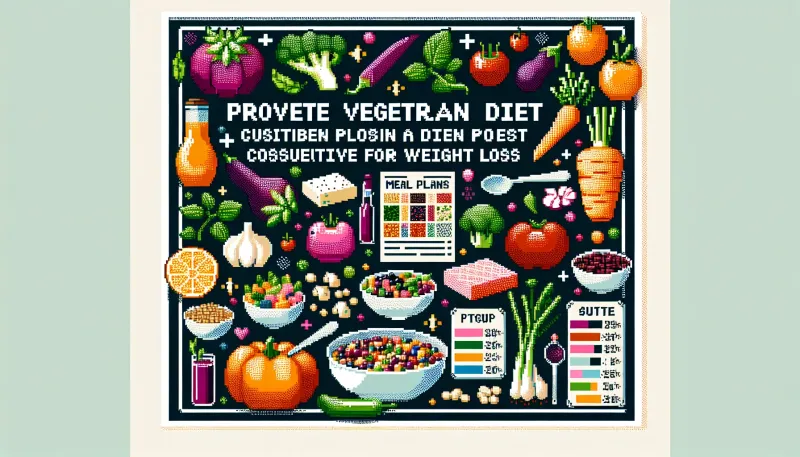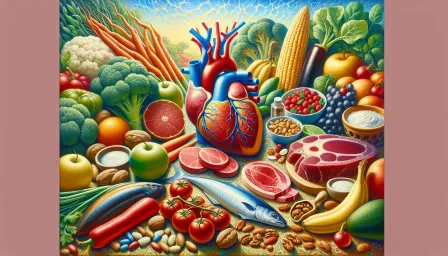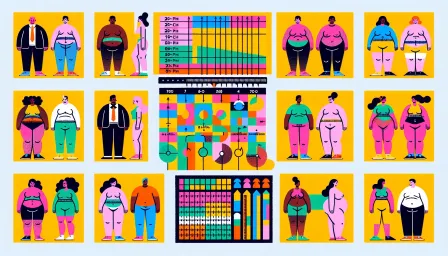Proven Tips on a Vegetarian Diet for Weight Loss

Discover effective strategies and tips on following a vegetarian diet for weight loss. Learn how to balance nutrition, plan meals, and achieve your weight loss goals sustainably.
As more people seek healthier and environmentally conscious lifestyles, the popularity of vegetarian diets is on the rise. A well-planned vegetarian diet can not only support overall health but can also be effective for weight loss. This article provides scientifically-backed tips and practical strategies to help you achieve your weight loss goals while following a vegetarian diet.
Understanding a Vegetarian Diet
A vegetarian diet is one that excludes meat, poultry, and fish. Various forms of vegetarianism include:
- Lacto-vegetarian: Includes dairy products but excludes eggs, meat, and fish.
- Ovo-vegetarian: Includes eggs but excludes dairy products, meat, and fish.
- Lacto-ovo vegetarian: Includes both dairy products and eggs but excludes meat and fish.
Choosing the right type for you can depend on your dietary preferences and nutritional needs.
Benefits of a Vegetarian Diet for Weight Loss
A well-planned vegetarian diet can be a powerful tool for weight loss due to several factors:
- Higher intake of fruits and vegetables, which are low in calories and high in nutrients.
- Rich in fiber, promoting satiety and reducing overall calorie intake.
- Lower in saturated fats found in animal products, which can help reduce calorie consumption.
Effective Strategies for Weight Loss on a Vegetarian Diet
1. Prioritize Protein
Protein is essential for muscle maintenance and satiety. As a vegetarian, include diverse sources of plant-based protein in your diet, such as:
- Legumes (lentils, chickpeas, beans)
- Nuts and seeds
- Tofu and tempeh
- Quinoa and other whole grains
- Eggs and dairy products (if applicable)
2. Incorporate Whole Foods
Opt for whole, minimally processed foods rich in nutrients. These include fresh fruits, vegetables, whole grains, nuts, and seeds. Avoid processed vegetarian foods that can be high in sugar, unhealthy fats, and sodium.
3. Monitor Portion Sizes
Even healthy foods can contribute to weight gain if consumed in large quantities. Pay attention to portion sizes and try to eat mindfully, savoring each bite.
4. Plan Balanced Meals
Ensure each meal contains a good balance of macronutrients: carbohydrates, proteins, and fats. This balance can help stabilize blood sugar levels and prevent overeating.
5. Stay Hydrated
Drinking adequate water is crucial for metabolism and can aid in weight loss. Sometimes thirst is mistaken for hunger, leading to unnecessary snacking.
Addressing Nutritional Considerations
While vegetarian diets can provide many health benefits, it is important to be mindful of potential nutrient deficiencies.
1. Vitamin B12
Vitamin B12 is primarily found in animal products. Vegetarians should consider fortified foods or supplements to meet their B12 needs.
2. Iron
Plant-based iron is less readily absorbed by the body compared to iron from meat. Include iron-rich foods like spinach, legumes, and fortified cereals, and pair them with vitamin C-rich foods to enhance absorption.
3. Omega-3 Fatty Acids
While fish is a common source of omega-3s, vegetarians can obtain these essential fats from flaxseeds, chia seeds, walnuts, and algae-based supplements.
Common Challenges and Solutions
Adopting a vegetarian diet for weight loss can come with challenges. Here are solutions to common issues:
1. Feeling Hungry
Incorporate more high-fiber foods, and ensure you're consuming enough protein at each meal to stay fuller for longer.
2. Cravings for Meat
Try meat substitutes made from soy or other plant proteins, and experiment with spices and cooking techniques that mimic the flavors you miss.
3. Social Situations
Plan ahead for eating out by checking restaurant menus in advance or bringing your own vegetarian-friendly dishes to social gatherings.
Sample Meal Planning
Here’s a simple meal plan to get you started:
- Breakfast: Greek yogurt with berries and chia seeds, or a smoothie with spinach, banana, and protein powder.
- Lunch: Quinoa salad with mixed greens, chickpeas, cherry tomatoes, and a lemon-tahini dressing.
- Snack: Carrot sticks and hummus, or a handful of nuts.
- Dinner: Stir-fried tofu with broccoli, bell peppers, and brown rice.
Conclusion
Transitioning to a vegetarian diet for weight loss can be both rewarding and effective. Focus on diverse, nutrient-rich whole foods, balance your macros, and ensure you’re covering key nutrients like protein, iron, and vitamin B12. By implementing these proven tips, you’ll be well on your way to achieving your weight loss goals in a healthy and sustainable manner.



























